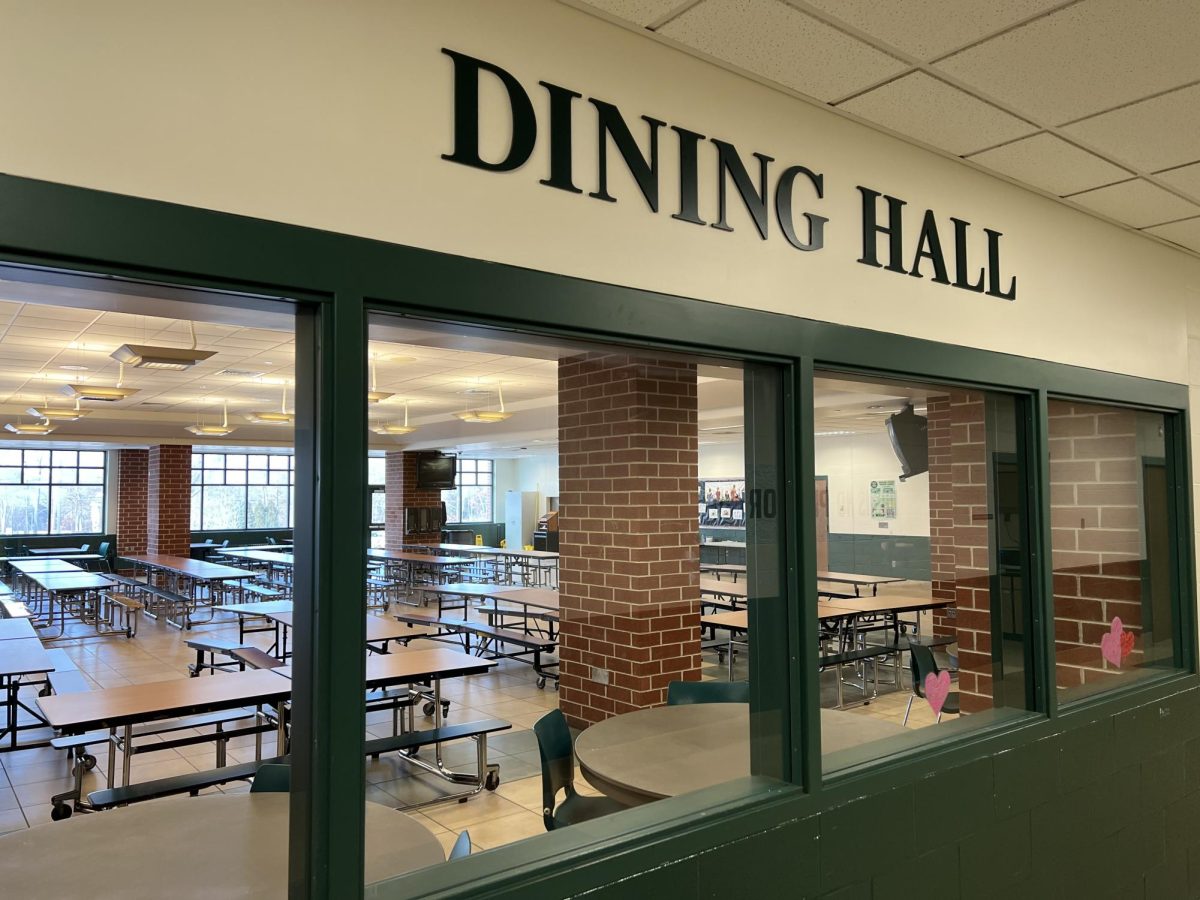The food service at Dartmouth Public Schools was quite “institutional,” in the words of Assistant Superintendent James Kiely. Director of School Nutrition Jeanne Sheridan has spent the past seven years changing that.
At a school committee meeting on January 6, Sheridan explained how she and her dedicated staff are working to improve the food, infrastructure, and environment of the cafeterias. Here are a few of the initiatives in progress across the district.
Stainless Steel Trays
Prior to COVID, DPS served their meals on washable plastic trays. They switched to Styrofoam trays during the pandemic—as did several local schools. However, unlike their neighbors, DPS didn’t bring back the reusable trays as they rolled back pandemic-era safety measures.
This decision wasn’t just an environmental concern. It increased the district’s waste and put students’ health at risk. Styrofoam is made from fossil fuels and styrene, a hydrocarbon formed from the chemical benzene. Exposure to hot temperatures—such as those of a fresh meal—cause styrene and benzene to leach into food. When ingested, these chemicals can cause drowsiness, headaches, tremors, anemia, depression, and leukemia.
In addition, ingesting a small amount of styrene every day can negatively impact your nervous system, endocrine system, bloodstream, and chromosomes over the long term.
In the interest of sustainability, Sheridan applied for grants to purchase stainless steel trays. She ended up receiving $20,000 last spring, which she used to buy “enough [trays] to serve at least four of the schools, at no cost to us.”
Heat leaches chemicals from plastic in a similar way, so stainless steel is a safer alternative to the old washable plastic trays.
Due to underuse over the past four years, the schools’ industrial dishwashers are in need of repair. Potter and the middle school’s dishwashers are currently operational. Quinn is next in line for a tune up, followed by DeMello.
Both DMS and Potter use the steel trays on a regular basis. However, if there’s a staffing shortage in the kitchen, DMS uses compostable trays for the day.
School Committee Vice Chairperson Elizabeth Coughlin asked Sheridan about replacing plastic utensils with silverware and introducing composting to the schools. Those sustainability efforts are more challenging, Sheridan said. Forks and spoons often get lost or thrown out, even if there’s a magnet above the trash can to catch them. Replacing silverware consistently would be less cost-effective than buying plastic utensils in bulk. Meanwhile, Potter expressed interest in adopting a compost system, but Kiely identified some hurdles as he discussed it with the school.
A compost pile could possibly attract rodents and give off a smell. And, in order for a system to succeed, “it has to be something that people are willing to do extra work for because it’s not going to happen by itself,” Kiely said. “We don’t have the staff to do it from a food service perspective. It really has to be something that the school wants to do and incorporate into the curriculum. We’re working on that.”
Sheridan added, “We’re looking at other districts that have composting [as models], but they’re a little bit bigger than we are and a little more resourced.”
Revamping the Menu—with a Cultural Twist
Sheridan’s goals also include improving the quality of the food students are served. “We really want to get rid of the highly processed foods,” she said, while utilizing scratch cooking more often.
Her solution is two-pronged. First, Sheridan is using $20,576 in grant money to purchase local food products. She defines local as being “within 100 miles of Boston.” The non-profit Coastal Foodshed, which serves greater New Bedford and the Southcoast, supplies DPS with Massachusetts-grown lettuce and tomatoes. Butcher shop Meatworks provides beef grown in Westport. And Boston-based seafood market Red’s Best has helped the cafeterias make fish sticks and baked haddock, using “fish coming right off the boats in New Bedford.”
Sheridan said students are encountering local products in their lunches “on a daily basis.”
On top of that, DPS is taking part in the CRISP program, created by Framingham State University’s John C. Stalker Institute of Food and Nutrition. Every early release day from January through April, a professional chef from the Institute will teach the cafeteria staff various cultural cooking techniques.
This month’s theme is Asian fusion. Chef John White had the staff making chicken teriyaki with Chinese noodles, crispy tofu, confetti rice, stir-fry vegetables, and mandarin fruit salad, to name some examples.
February’s theme is Mediterranean flavors, followed by Latin American in March and Indian in April. The week after the lesson, White or another chef will return to Dartmouth to taste test the cafeteria staff’s meals with students. (In fact, this Wednesday, a Stalker Institute chef was in the DHS cafeteria handing out samples of crispy tofu in teriyaki sauce.) The week after that, the chef will be on the line helping the staff cook the meals in time for lunch period.
After his lesson, White told The Standard-Times “the group [of cafeteria workers] was wonderful. It doesn’t always go that smoothly, but you could tell they were open to learning, so I’m really excited to do more work with them.”
Sheridan also discussed a project to redesign the middle and elementary schools’ cafeterias. Principals worked with a graphic designer to repaint the bland, “institutional” white walls with vibrant colors and murals. The new looks, accompanied by thorough cleanings of the decades-old spaces, make the cafeteria a more inviting place for students as they line up to try the newest dish of the day.
“This is our program. We’re proud of it,” Sheridan said. “We’ve got a great staff. We’re always moving forward and feeding kids.”














Laura Gardner • Feb 9, 2025 at 6:35 am
This is so exciting! I’m thrilled that the district is taking steps to be more sustainable and healthy in the cafeteria. Regarding composting, one other option is a compost pickup service. Black Earth Compost now picks up composts from households in Dartmouth. I’m sure the school could set up a commercial contract if they wanted to. We’ve been using Black Earth curbside composting at our house in Fairhaven since September and it’s been great. We were getting rats in our backyard compost, which was awful.
samuel brodsky • Feb 2, 2025 at 7:46 am
I love the idea of composting. DHS seems like the obvious choice to start it – we have the only group of students capable of running this type of program. But do we have the desire to do the actual work?